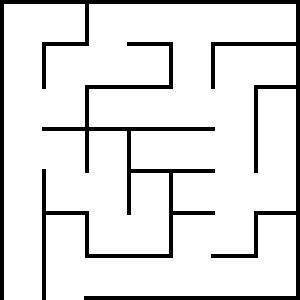The ancient Greeks had a vocabulary for Time that may be helpful for understanding various passages in the New Testament. Three words we’ll be considering are ChRONOS (usually translated just ‘time’), KAIROS (usually translated ‘opportune time’), and AIŌN (usually translated ‘eternity’ or ‘age’). First we’ll consider ChRONOS and KAIROS, then AIŌN.
ChRONOS is the passage of time in the physical world. Today we measure it with ‘chrono-meters’ or clocks, but ChRONOS is not how humans experience time. When I think about the unfolding of my life over the years, or even reflect on what happened yesterday, I don’t recall it as a continuous sequence of points of time, but as distinct significant moments. Each of those significant moments is KAIROS.
Indeed we moderns are enslaved by ChRONOS — clocks. So foreign is ChRONOS to the way our souls experience time, that we need jarring alarm clocks and pop-up calendar reminders to constantly jolt us back into its thrall.
KAIROS, however, is not measured by ‘hours, minutes, seconds’ — defined by some mechanical chronometer, but by moments of human significance and opportunity.
ChRONOS vs. KAIROS reminds me of an anecdote about Einstein: he was once asked for a simple explanation of Relativity, to which he replied:
An hour sitting with a pretty girl on a park bench passes like a minute, but a minute sitting on a hot stove seems like an hour. That’s Relativity.
AIŌN is sometimes translated ‘eternity’ — Jesus promises “Whoever believes in me shall have eternal/AIŌN-ish life” (Jn.3:15), but in other places AIŌN is translated ‘age’ — “I am with you to the end of the age/AIŌN” (Mt.28:20). How can AIŌN both be ‘eternal’ — without end, yet have an end?
I think we get a hint from the Greek gods ChRONOS and AIŌN. ChRONOS was the god of Time, particularly when Time is viewed as a destructive, all-devouring force. AIŌN, however, is the god of cyclical or unbounded Time, the sphere encompassing the starry universe including the zodiac — the twelve constellations that demarcate the horizon of the night sky. As a god of eternity, AIŌN is also concerned with the afterlife.
If you get away from human civilization and its light pollution which blots out the stars, and instead experience the night sky in the deep wilderness, you experience the Cosmos with a luminous timelessness. A feeling of ‘timeless time’. For us Moderns that’s a rare experience, but for the Ancients it was every night. The sun rises and sets. The moon waxes and wanes. The seasons come and go. “A generation comes, and a generation goes, but the earth abides forever.” The Ancients — Greek, Jewish, and everyone else — were well acquainted with the endless cycles of the night sky.
Let’s try to imagine how Time might feel differently for the ancients than for us moderns. We see the world change almost daily due to technological advancements and the societal disruptions they cause (for good and ill). So we very much experience the March of Time going somewhere (whether that’s upward to the stars or over a collective cliff remains to be seen!) Day to day life is quite different for me than my parents, and theirs from their parents. But in ancient times, day to day life changed little from generation to generation. To be sure there was the occasional famine or conquering army marching through to break up the monotony. But apart from that, the way you farmed and raised animals and made clothes and pots and tables and houses was essentially the same as how your parents did those things, and their parents, and so on as far back as memory could go. So the Time you experienced most was the endless cycle of the seasons.
A cycle is another name for a circle (both ‘circle’ and ‘cycle’ have the same etymological origin). And circles are ‘endless’ in the sense that one can traverse around them without reaching an end. They are also ‘finite’ in the sense that when I traverse a circle, at some point I’ll end up where I started. So circles are both ‘finite’ and ‘endless’. (Mathematicians would say ‘finite but unbounded’).
One could could say ChRONOS is how our bodies experience time: the heart keeps beating like the ticking of a clock, and there are also the relentless ravages of aging (the two characteristics of the Greek god Chronos). And KAIROS is how Human Soul experiences time: meaningful, soulful moments. And AIŌN is how Divine Spirit experiences time: luminous and eternal. Metaphorically speaking, ChRONOS oppresses our busy ‘civilized’ lives by day, but AIŌN embraces us in her luminous womb of the night.
So when Jesus says we can have ‘AIŌN-ish life’ (e.g. Jn.10:28), He may be saying we can have life today with one foot in AIŌN, and in due time all of us will put off this mortal coil and step into AIŌN with both feet.
With this in mind Jesus’ statement “I’ll be with you to the end of the AIŌN” makes sense: even in Science, the passage of time on Earth is demarcated by ‘eons’ — geologic eons lasting millions of years, and the Earth passes from one geologic eon to the next. And there are celestial cycles of unimaginable duration as well. In Jesus’ day there was a sense that a human ‘eon’ was drawing to a close, and that a new one — ‘The Kingdom of God’ — the ‘Kingdom of the Heavens‘! — was about to dawn. So, sure, Jesus is saying He’ll be with us to the end of ‘this present AIŌN’, this current cycle. But there will be another cycle right after that — a new, better one.
So when you think of the ‘AIŌN-ish life’ that we can have both today and forever, consider the timeless, glorious and serene luminosity of the night sky for a taste of what that feels like. You’ll need to turn off your alarm clock to do that.
